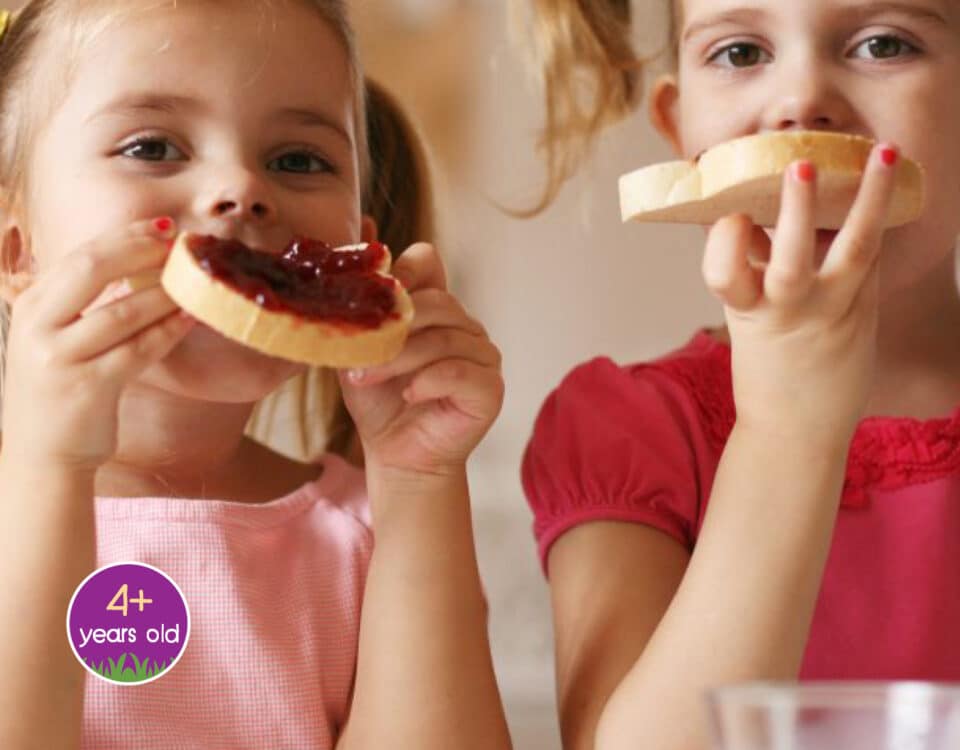
Milk after the 12th month: Fortified or not?
September 30, 2020
When your child is a picky eater
September 30, 2020The habit of having breakfast in toddlers


Amongst many other things that, as a parent, you have to teach your child, is the concept of a well-balanced diet and healthy dietary habits, such that of breakfast. Already from infancy, during which children learn to eat themselves, a child is capable of understanding the importance of breakfast…provided that you are there to pass along the right messages!
Why is breakfast important?
After an all-night abstention from food, a child’s body needs “fuel” to start off the day. This is particularly important for the brain’s function and may explain the scientific evidence for improved mental function – particularly when it comes to alertness, focus and memorizing – in children who eat breakfast compared to children who don’t.
Moreover, studies carried out in the US have shown that children who eat a nutritious and balanced breakfast, tend to also make healthier dietary choices throughout the rest of their day too. This means that they do not consume a lot of sugar and soft drinks and they choose more fruit and vegetables by better covering their needs in vitamins and minerals.
Finally, regular breakfast consumption brings health benefits for adults too. These concern improved weight management and obesity prevention and a smaller risk for type 2 diabetes and other cardiovascular diseases. This is why it is important to adopt good dietary habits already from childhood.
How to establish the habit of breakfast for your child
First of all, by setting a good example: instead of imposing breakfast to your child, eat breakfast with them. It looks like children who eat breakfast with their parents, compared to those who don’t share breakfast with their parents around the same table, tend to keep the habit of breakfast as they get older. Second, since you are responsible for the availability of foods and the environment during breakfast, try investing more time for a calm meal in the morning without rush and offer a selection of foods, ideally from all 5 food categories, to choose from: Dairy, whole grain, protein (e.g. egg), fruits and vegetables. Some examples of nutritious breakfast meals include:
- Milk with whole-grain cereal and one fresh fruit
- Grilled sandwich with whole-grain bread, cheese, an egg and tomato
- Yogurt with raisin and nuts and 2 crispbreads
- One slice of bread or 1 small koulouri with tahini and 1 glass of milk or milk mixed with juice (smoothie)
Indicative bibliography
- Scaglioni S, De Cosmi V, Ciappolino V, Parazzini F, Brambilla P, Agostoni C. Factors Influencing Children’s Eating Behaviours. Nutrients. 2018;10(6):706. Published 2018 May 31.
- Egner R, Oza-Frank R, Cunningham SA. The school breakfast program: a view of the present and preparing for the future-a commentary. J Sch Health. 2014;84(7):417-20.
- Gibney MJ, Barr SI, Bellisle F, et al. Breakfast in Human Nutrition: The International Breakfast Research Initiative. Nutrients. 2018;10(5):559. Published 2018 May 1.

|
Siatitsa Evita MSc, Clinical Dietitian Nutritionist Scientific Associate at Horokopio University |
[/su_table]






